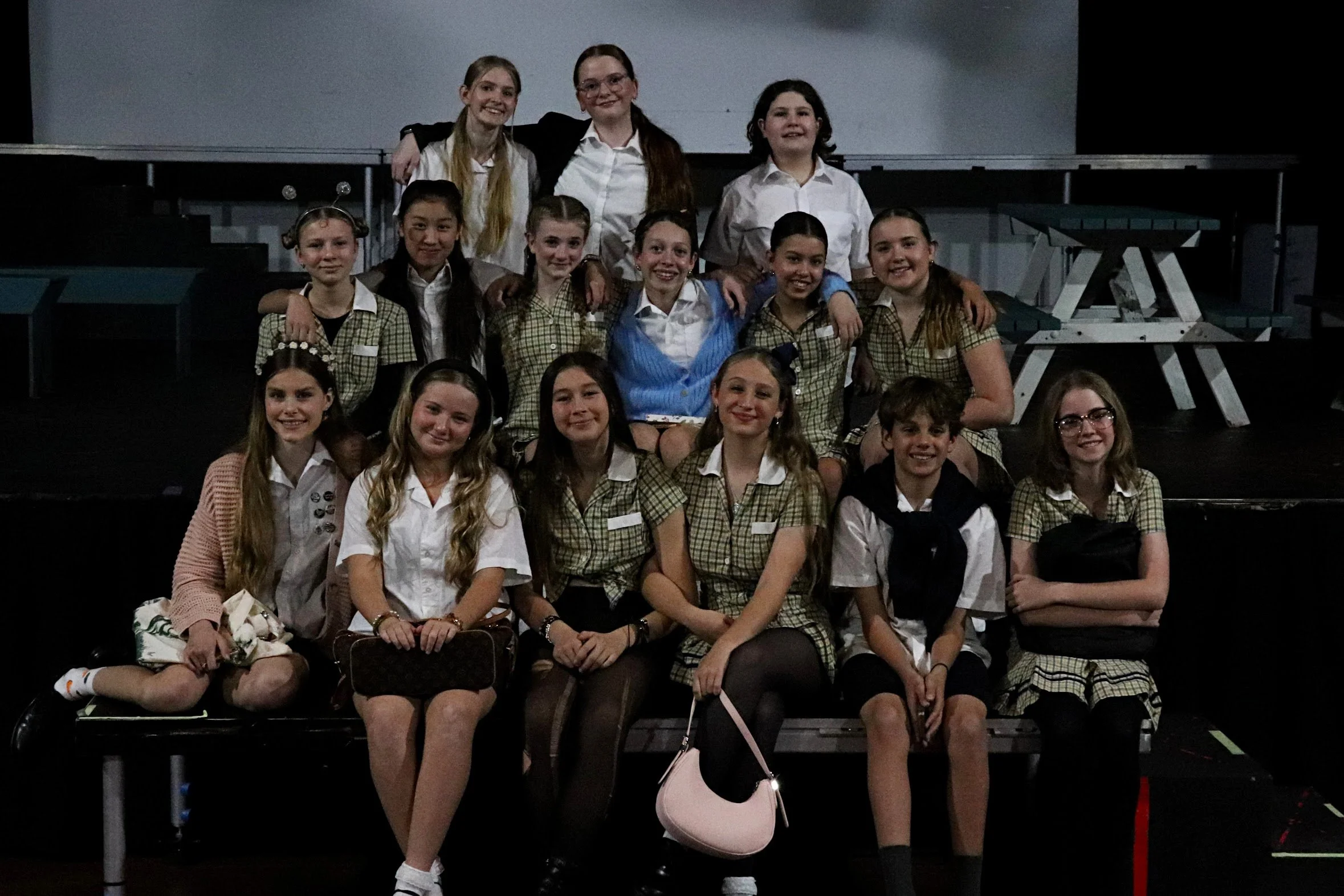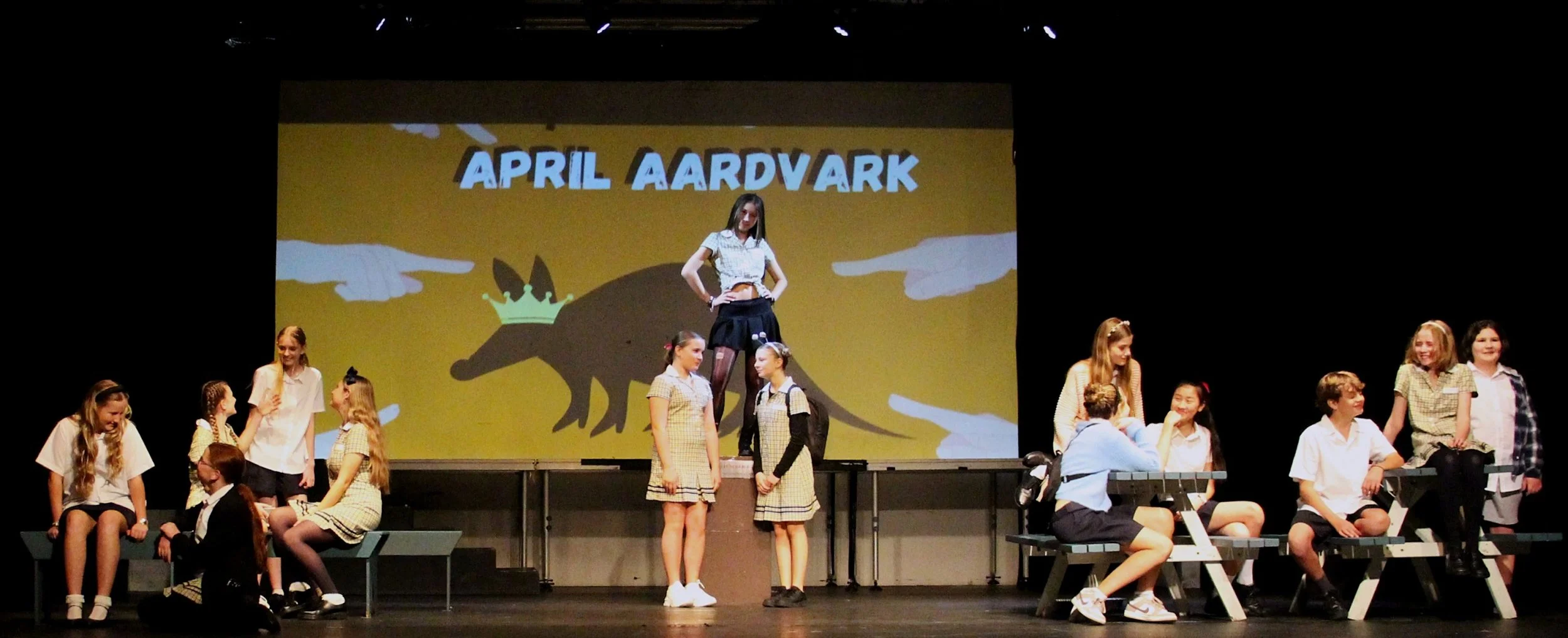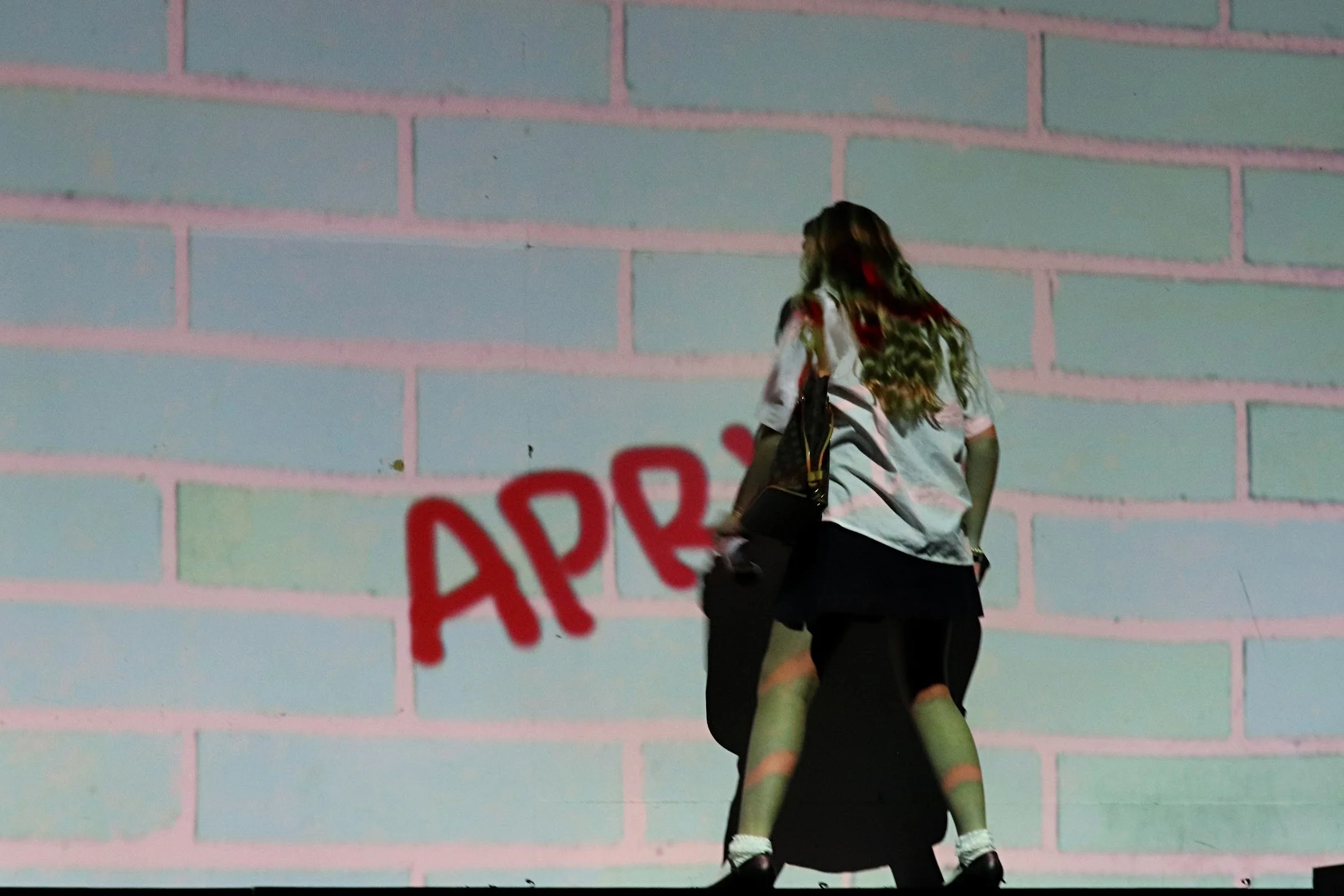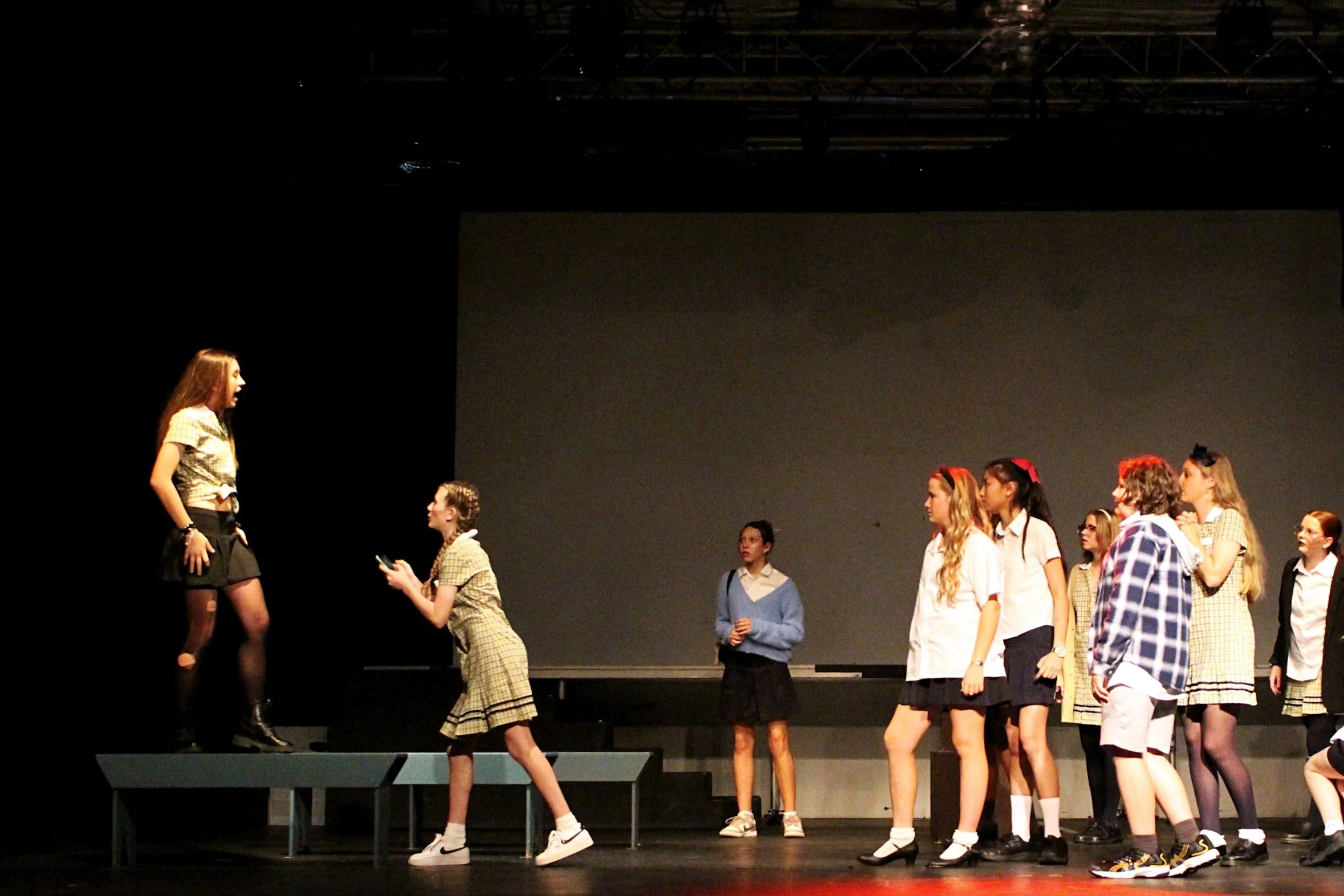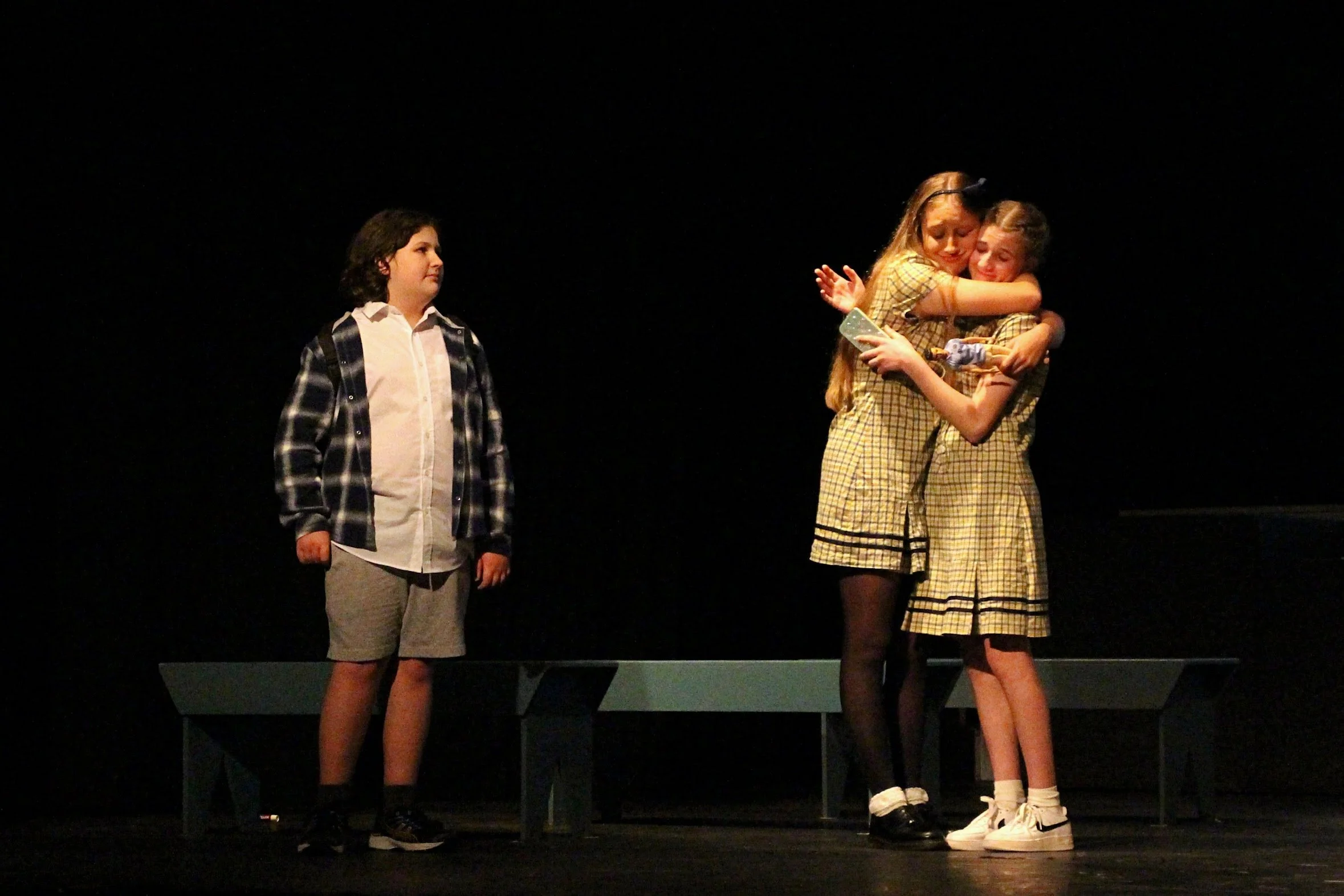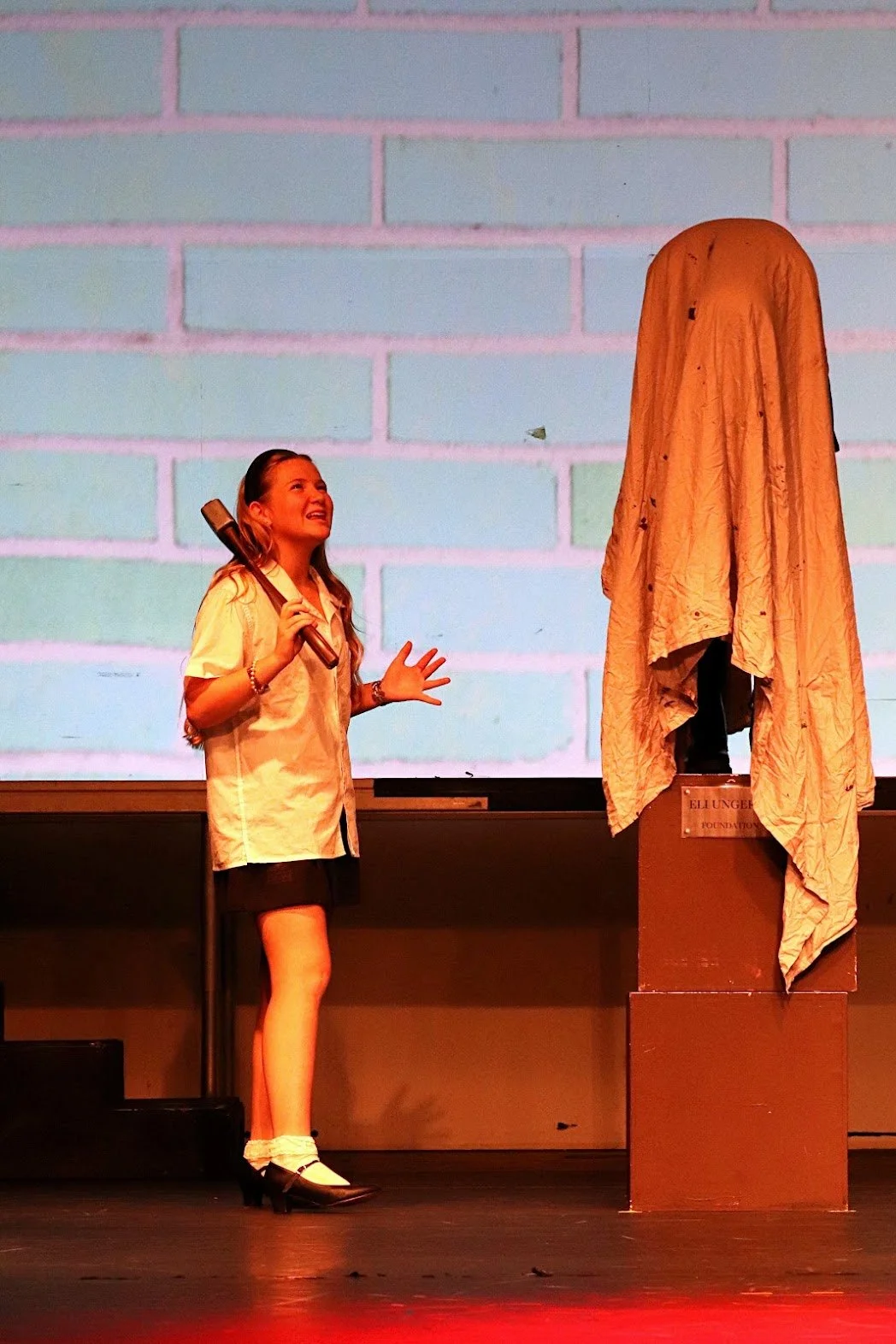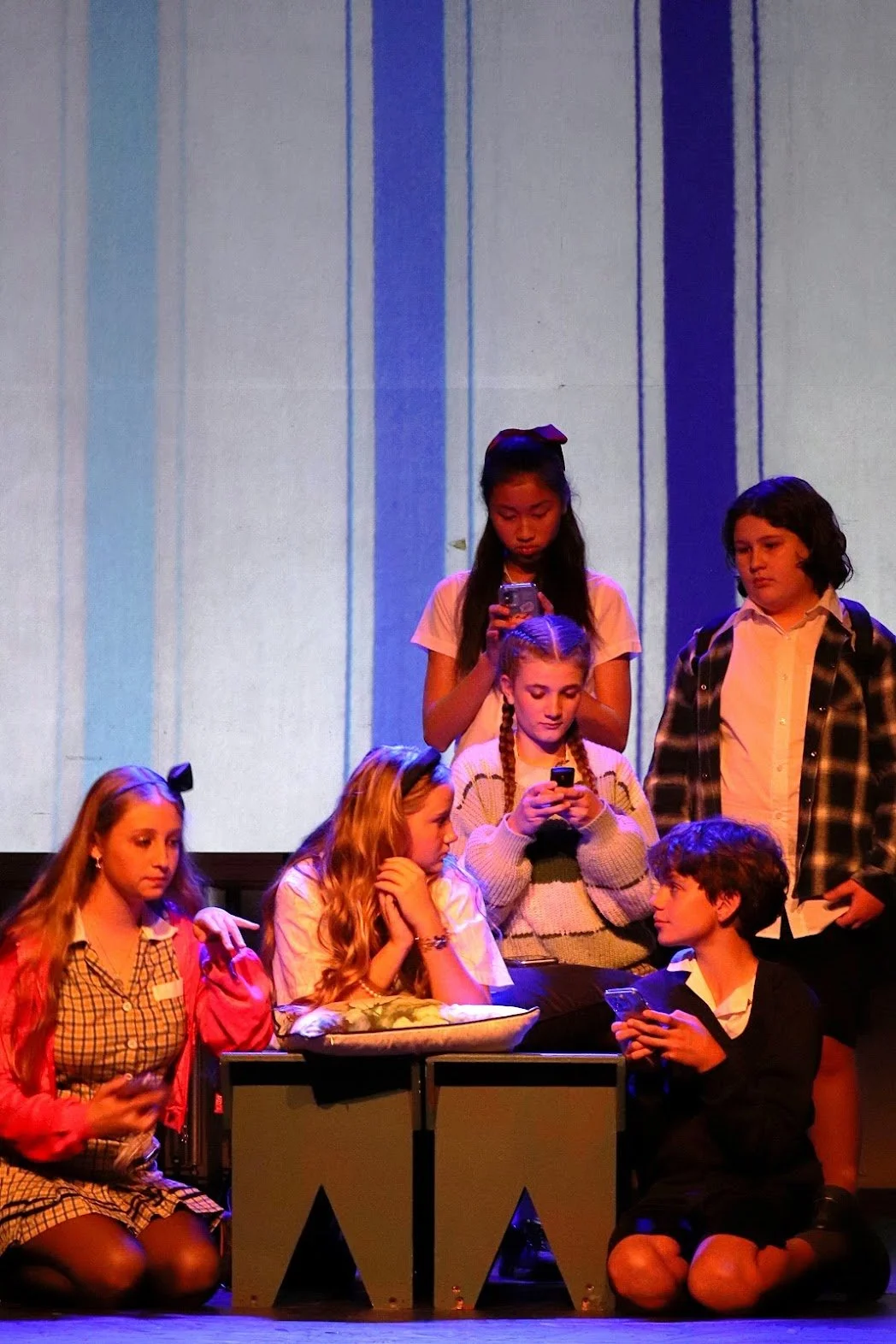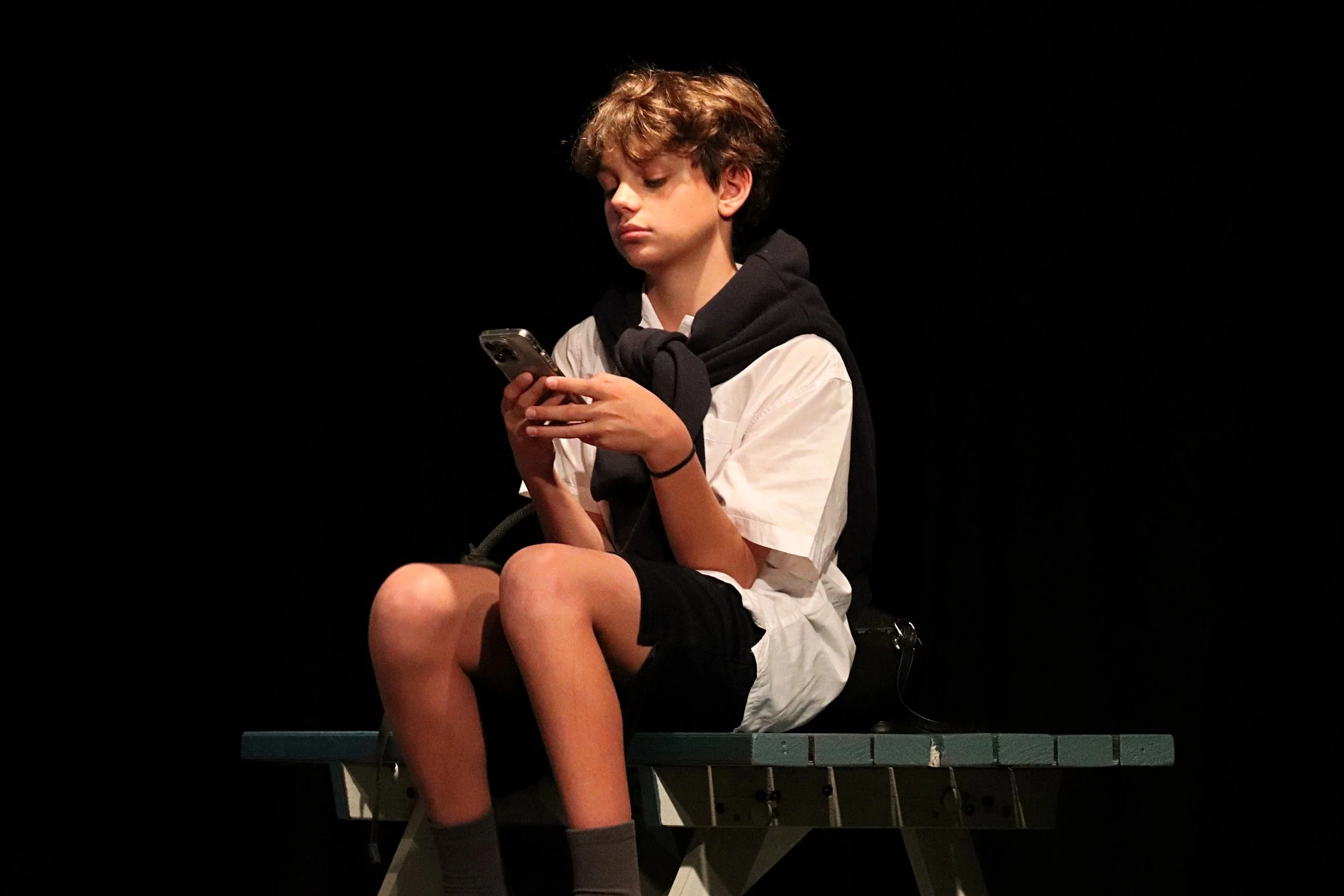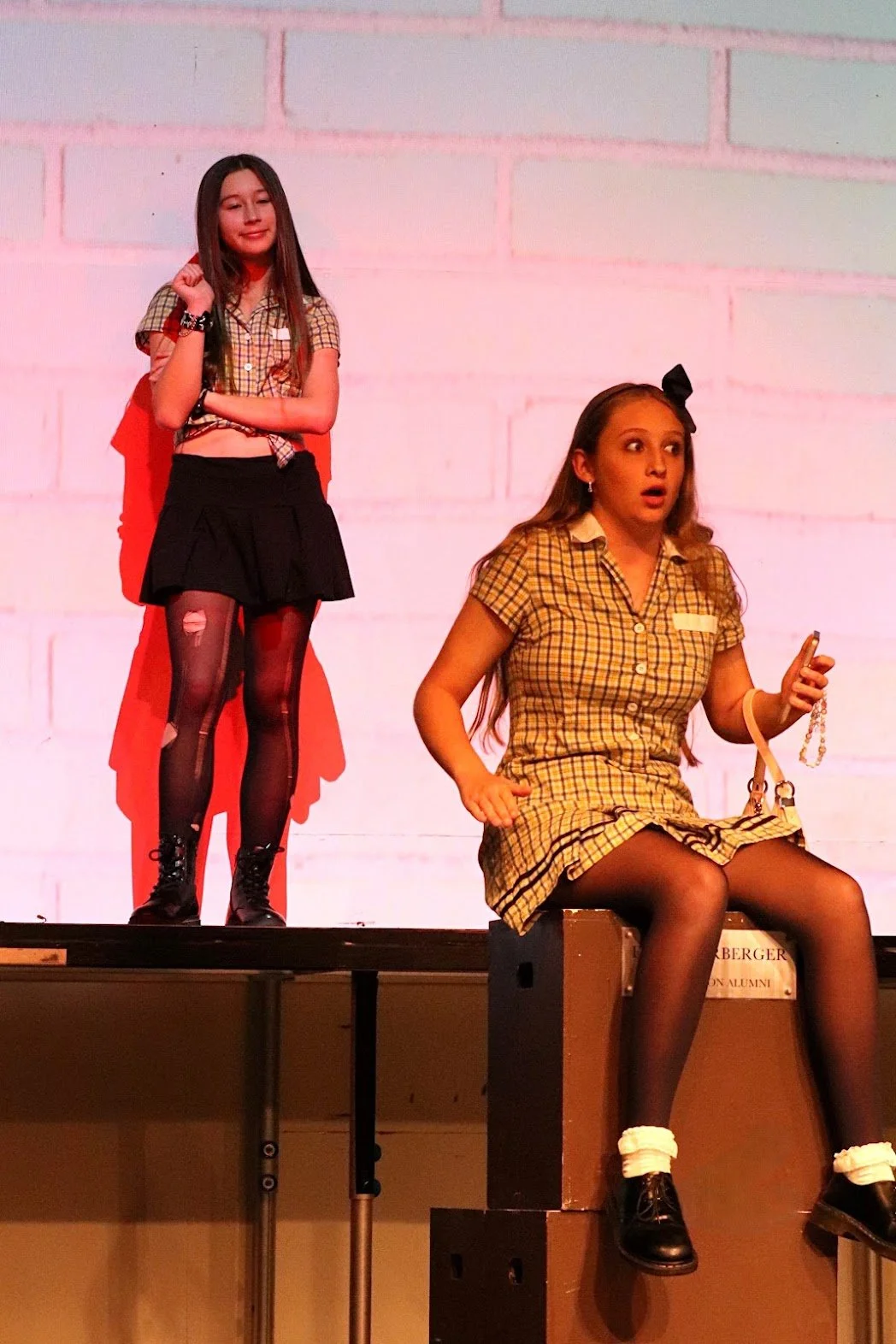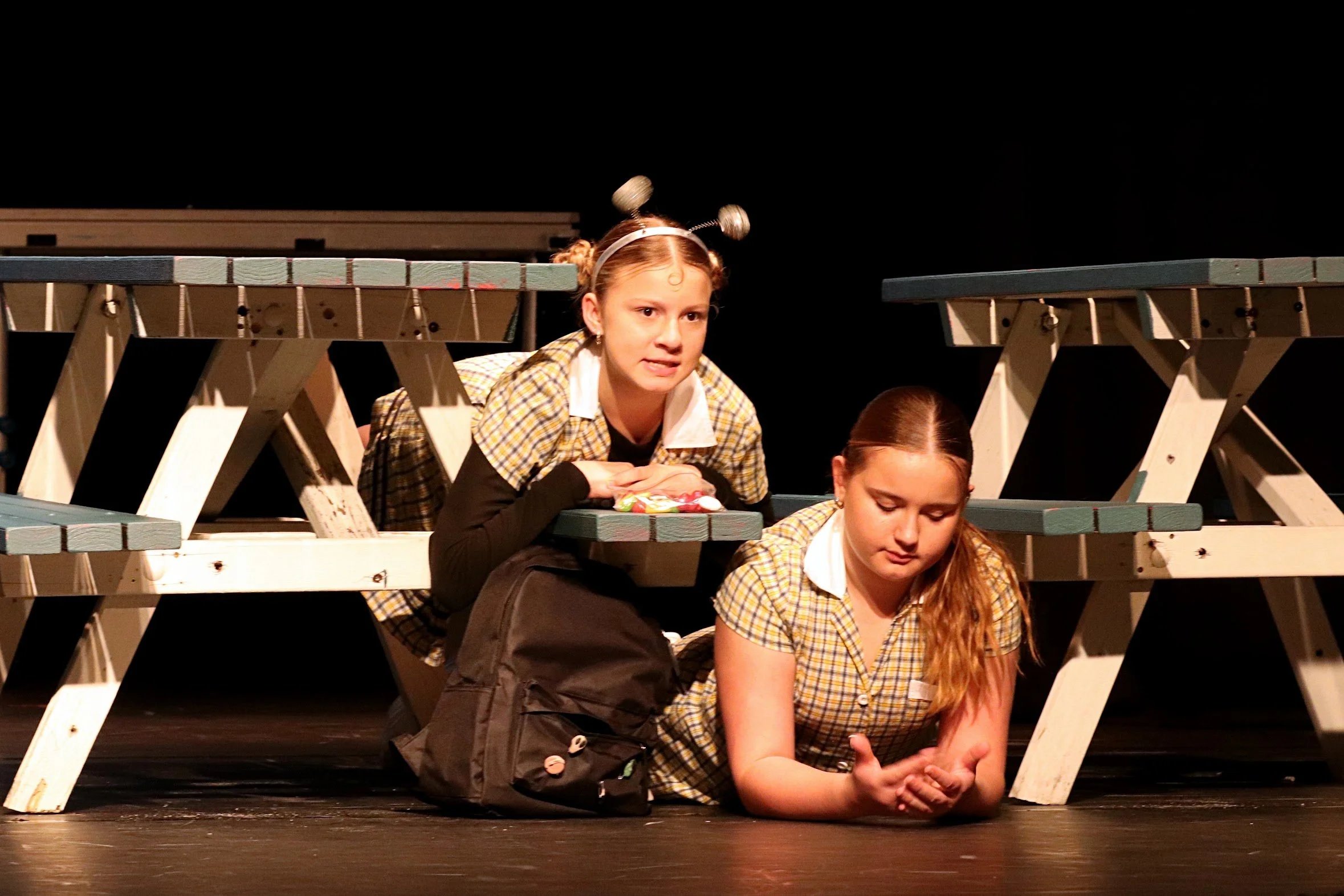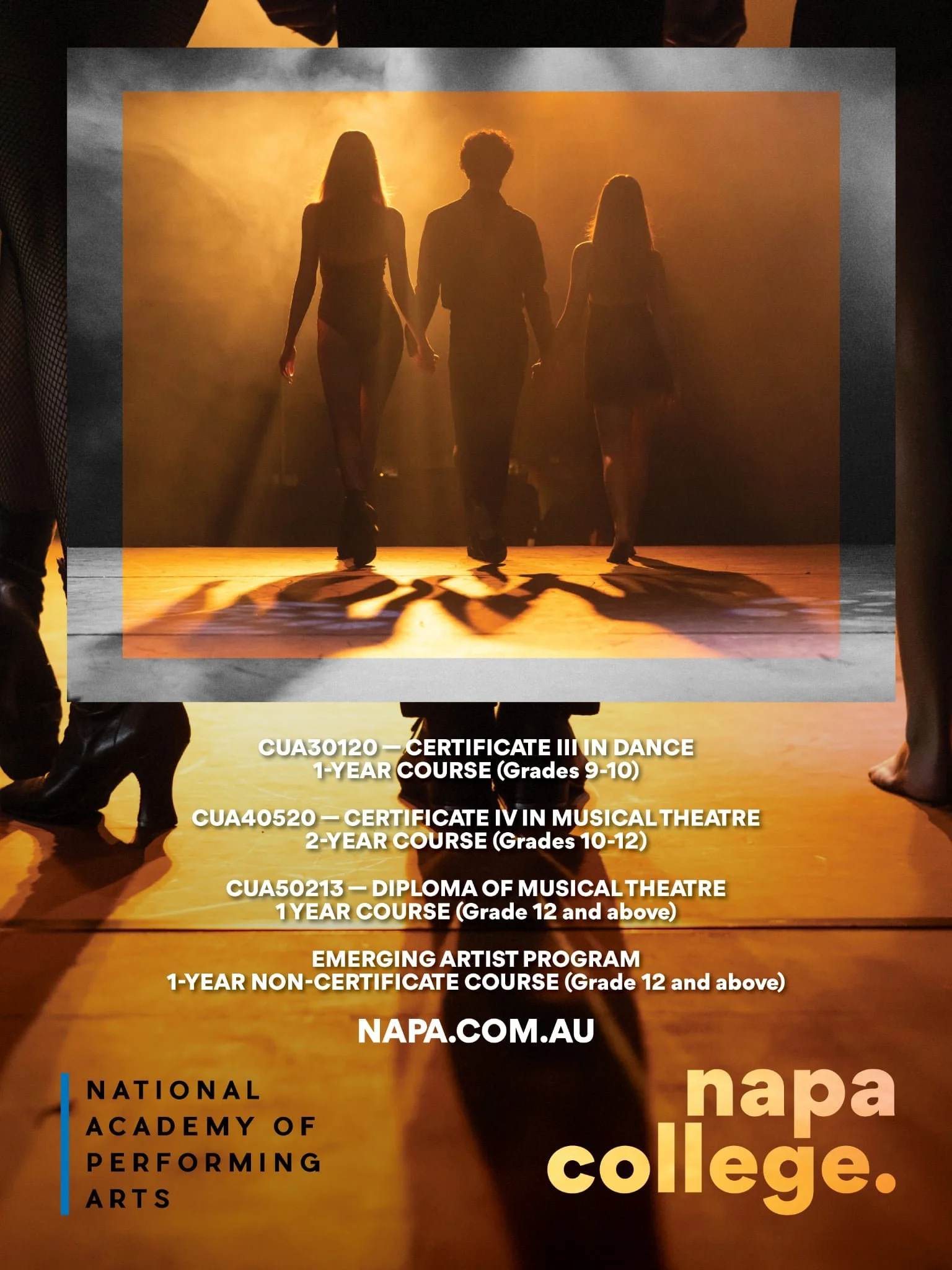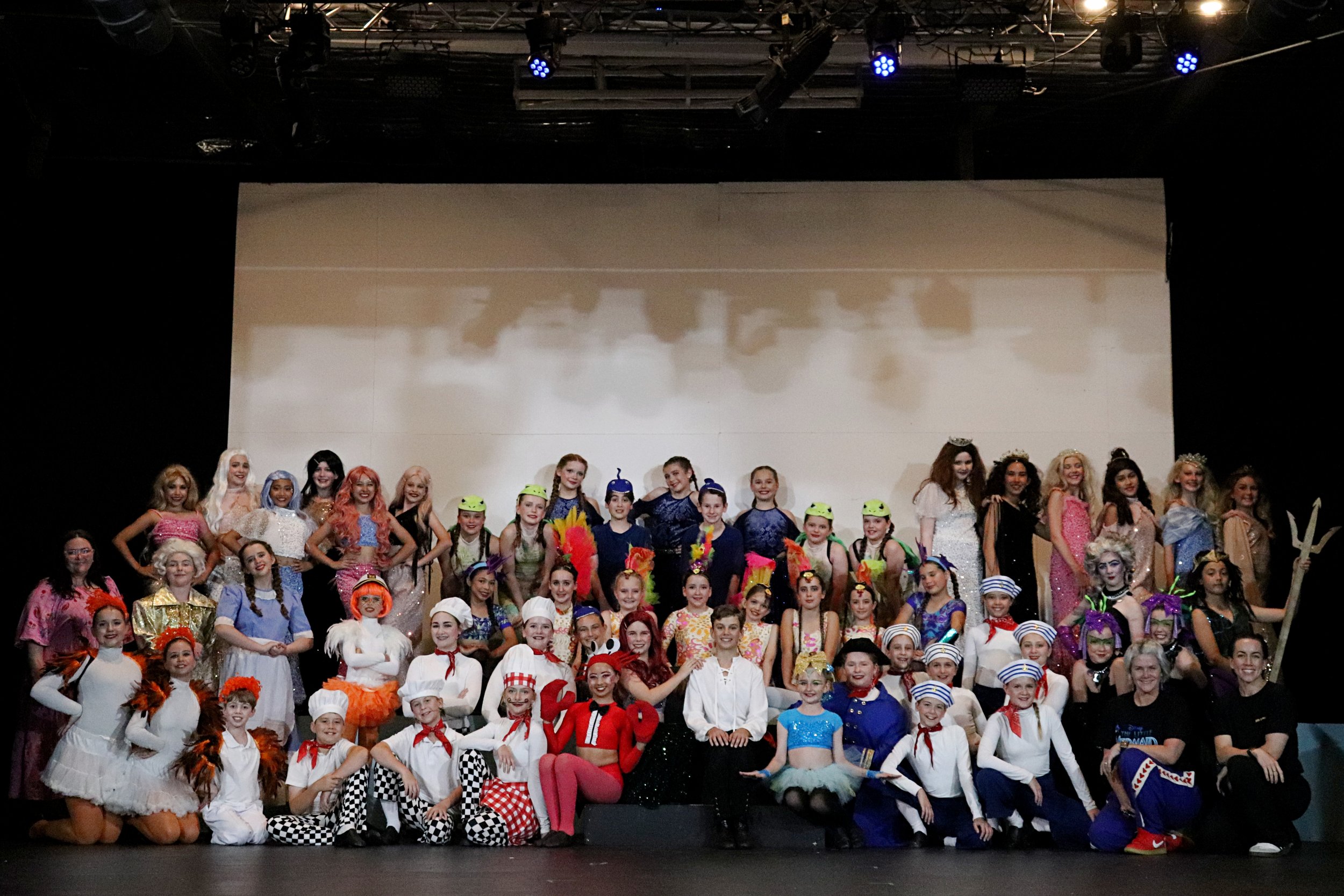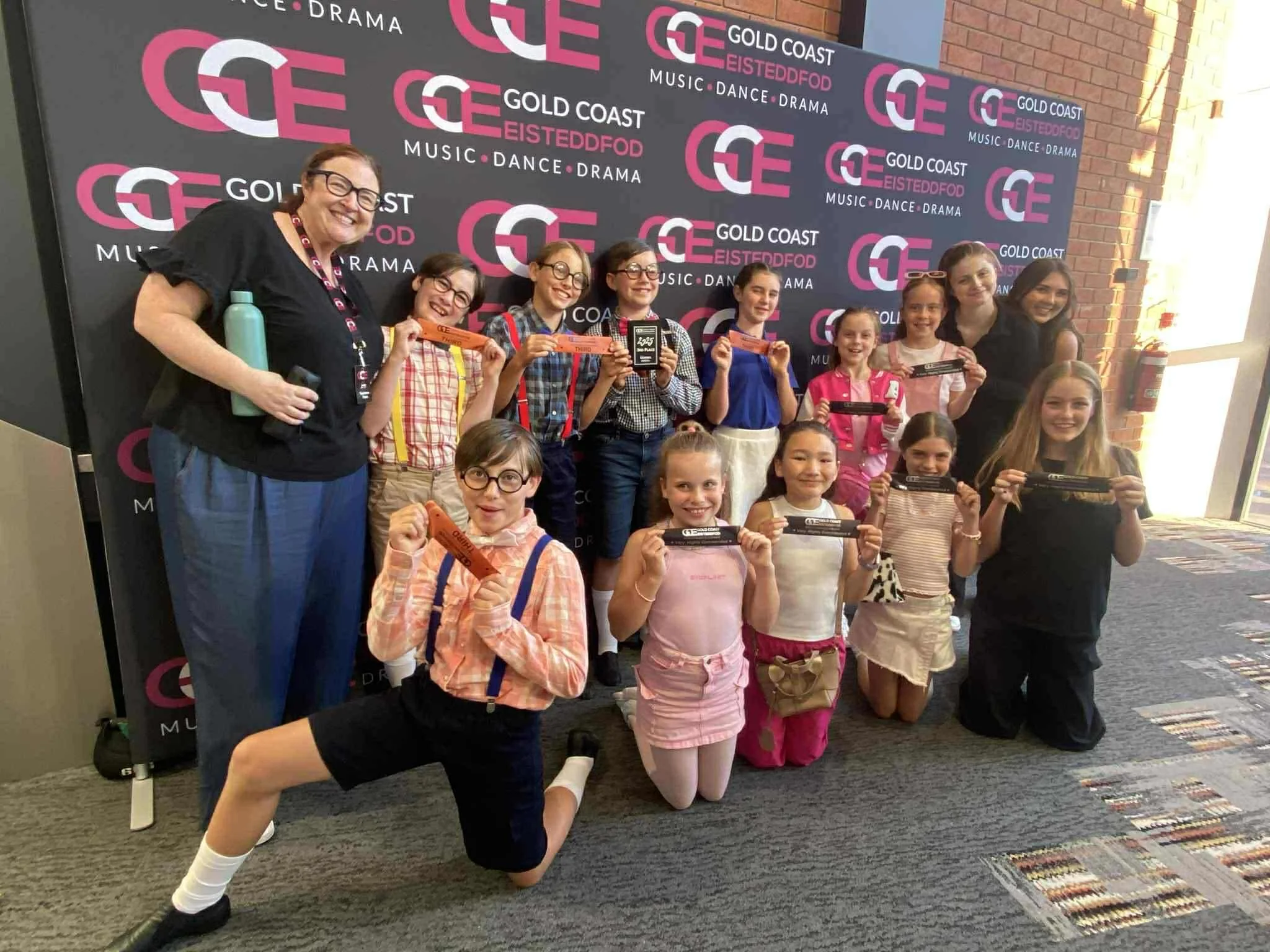NAPA News - Week 9, Term 3, 2025
FROM THE DIRECTOR
Another big week comes to a close. This weekend our Dance students competed at Evolution Dance Competition and our Pre-Senior Tread the Boards class staged their production of April Aardvark. I was so glad I got to see the Friday evening performance before heading into comp land on the weekend. These young actors are an absolute credit to our amazing Miss Amy. The level of performance from these grade 7-9 students was brilliant and they conducted themselves like true professionals in a very technically demanding show. I loved every aspect of their performance and could not be prouder of the students’ growth this year.
QUICK REMINDERS
TICKETS FOR WINNIE THE POOH ARE NEARLY SOLD OUT
FINAL REMINDER FOR LOST PROPERTY BEFORE IT IS DONATED
SEPTEMBER FEES ARE NOW OVERDUE
NEWS HIGHLIGHTS
NAPA COLLEGE 2026 - AUDITION REGISTRATIONS NOW OPEN
Do you want to train in a safe, supportive, and professional environment, while also continuing your schooling? NAPA College will soon be offering full-time training for students from Grade 9 through to pre-professional level with accredited courses for all ages. Audition registrations are now open!
We are also taking Expressions of Interest for:
Part-time courses for students in Grades 7 and 8
Home-schooling programs for Primary-aged students
NAPA COLLEGE FULL-TIME COURSES
CUA30120 Certificate III in Dance – 1 year
(available for students in Grades 9–10)CUA40520 Certificate IV in Musical Theatre – 2 years
(available for students in Grades 10–12)CUA50213 Diploma of Musical Theatre – 1 year
(available for students in Grade 12 and above)Emerging Artist Program – 1 year, non-accredited
(available for students in Grade 12 and above)
Entry Requirements
All students are required to attend an audition and interview process to qualify for entry into these courses.
EVOLUTION DANCE COMP
Well done to our Performance Teams on their successful weekend at Evolution Dance Comp. Once again their professionalism shone through, and we could not be prouder. This marks our final comp for 2025! The growth in every student this year has been remarkable and we can’t wait to see what next year’s teams will bring to the stage.
8s Song & Dance - 1st
10s Song & Dance - 1st
10’s Song & Tap - 1st
10’s Small Group Lyrical - 1st
12s Musical Theatre - 1st
12s Broadway Jazz - 1st
12s Hip Hop - Special Mention
14’s Hip Hop - 2nd
14’s Acro - 1st
16s Musical Theatre - 1st
16s Small Group Jazz - 2nd
16s Large Group Jazz - 2nd
16s Contemporary - 2nd
Opens Musical Theatre A - 1st
Opens Musical Theatre B - 2nd
Opens Song & Tap - 1st
OpensAny Style (S&D) - 1st
Opens Lyrical - 2nd
Opens Contemporary - 1st
If you’re interested in joining our teams in 2026, keep an eye out for our audition announcement coming soon. Team auditions will be held on Wednesday 21st January, 2026.
SUMMER SCHOOL REGISTRATIONS NOW OPEN!
Applications for our Summer School - CHARLIE & THE CHOCOLATE FACTORY are now open! If you wish to audition for a lead role, you need to register at the link below and also enrol in the program via your parent portal. All information can be found on our auditions page.
Wellbeing
Soundtrack Your Day: Using Music to Support Your Wellbeing as a Performer
Life as a performer is full of emotional shifts. One moment you’re building energy for an audition, the next you’re navigating rehearsal stress, and later you’re trying to come down from the rush of a performance. These transitions can leave your mind and body feeling scrambled if you don’t create healthy ways to manage them.
One of the simplest tools you can use? Music.
Why Music Works
Music has a direct effect on both your body and emotions. Fast tempos can raise your heart rate and boost adrenaline, while slower rhythms calm the nervous system and help you breathe more deeply. The right track at the right moment can completely change how you feel—making it a powerful wellbeing tool for performers who need to shift gears quickly and often.
The Pump-Up Playlist
Before auditions, rehearsals, or shows, you want to feel energised, focused, and confident. A pump-up playlist helps you:
Shake off nerves
Boost motivation and self-belief
Get your body moving and grounded
💡 Tip: Choose songs with strong beats, uplifting lyrics, or rhythms that make you want to dance. Imagine walking into your audition like it’s your entrance in a movie—the music sets the tone.
The Calm-Down Playlist
After a show or long day of rehearsal, your body is still buzzing with adrenaline. Without a cool-down, you might struggle to sleep, focus, or simply relax. A calm-down playlist helps you:
Lower stress and heart rate
Transition out of “performance mode”
Signal to your body that it’s safe to rest
💡 Tip: Fill this playlist with acoustic tracks, instrumental music, or songs that feel comforting. You want your body to exhale, your breath to slow, and your mind to settle.
Character Playlists: Stepping Into the Role
Beyond your personal wellbeing, playlists can also help you connect more deeply with your characters. Creating a soundtrack for your role can:
Spark emotions and backstory for your character
Anchor you into the world they live in
Give you a quick “switch on” tool before scenes
For example, if you’re playing a confident, high-energy character, your playlist might include bold, upbeat tracks that make you feel unstoppable. For a vulnerable or introspective role, you might choose softer, haunting songs that draw you into their emotional state.
This not only supports your performance but also helps you leave the character behind more easily once rehearsal ends—because you can “turn off” their playlist and return to your own.
Making It Personal
The beauty of playlists is that they’re uniquely yours. Some performers love classical music for focus, others prefer hip hop or pop to get fired up, and some find nature sounds the perfect way to unwind. Experiment, notice how your body responds, and build playlists that genuinely work for you.
Final Thought
Think of your playlists as part of your toolkit as a performer—just as important as your water bottle, rehearsal clothes, or script. By soundtracking your day (and your characters), you give yourself the ability to manage energy, regulate emotions, and protect your wellbeing, no matter what the industry throws your way.
Because sometimes, the right song at the right time is exactly what keeps you balanced, resilient, and ready to shine.
CHERUB OF THE WEEK
CONGRATULATIONS POPPY!
This week we are thrilled to celebrate Poppy! A true ray of sunshine, Poppy is polite, positive, and passionate—she exemplifies everything it means to be a NAPA Cherub. All of her teachers were 100% unanimous in their decision that she should receive this week’s accolade. Poppy’s hard work, positive spirit, and dedication shine through in every class, making her so very deserving of this recognition.
Congratulations, Poppy – we’re so proud of you!
PERFORMANCE TIPS
The Importance of Independence in Young Performers
In the performing arts, independence is one of the most valuable skills a young artist can develop. While talent, training, and passion are essential, professionalism is what truly sets performers apart — and that begins with learning how to stand on your own two feet.
From the very first class to a professional audition, independence builds confidence, resilience, and responsibility. It also sends a strong message to directors, choreographers, and casting teams: this performer is prepared and reliable.
Preparing for Lessons & Rehearsals
Independence starts with the small things. Arriving on time, bringing all required materials (shoes, sheet music, scripts, water bottle, etc.), and being mentally ready for class are habits that shape performers into professionals. Encourage your child to double-check their bag, organise their costumes, and review their rehearsal notes. These simple routines create discipline and self-reliance.
Costumes & Performance Readiness
When it comes to costumes and performance gear, young performers should learn the responsibility of making sure every piece is accounted for and performance-ready. Teachers and directors notice when a student can take ownership of their preparation — it shows maturity and commitment.
Hair & Makeup
Another key aspect of independence is presentation. Stage hair and makeup are part of a performer’s professional image, and they must look polished and performance-ready. Parents can play a crucial role here — help your child achieve the required look until they are old enough and skilled enough to do it alone. Independence is the end goal, but sending a child on stage with makeup or hair that looks “home-done” can appear unprofessional and distract from their performance. Guide them, model good technique, and gradually step back as they gain the ability to achieve stage-ready results themselves.
Facing Auditions Alone
One of the biggest steps in a performer’s journey is attending auditions. Even for children, casting panels are assessing not only the performer but also the family dynamic. They notice when parents “hover” or interfere, and unfortunately, this can negatively impact the child’s chances. Directors want to see performers who can walk into the room with confidence, handle themselves professionally, and communicate independently.
The Role of Parents
Parents play a vital role in supporting young performers, but it’s important to strike the balance between guidance and over-involvement. Think of yourself as the backstage crew, not the main act. Give your child the space to pack their own bag, sign themselves in, and walk into auditions without you by their side. These are skills that will serve them for life — not just in performing, but in any professional setting.
Backing Themselves
At its heart, fostering independence teaches young performers to back themselves. To walk into a room, hold their head high, and know they’ve got this — no parent whispering from the sidelines needed. And the true reward of independence is the self-confidence that comes from knowing they achieved it themselves. When children learn they are capable, they grow into confident, adaptable performers ready to take on any opportunity.
Letting Go & Watching Them Soar
Of course, independence leads to the inevitable — the day when young performers grow into young adults, ready to leave home and chase their dreams. This can bring a sense of grief for parents, who have poured so much time, love, and support into preparing their child for this very moment. Letting go isn’t easy, but it is essential. The best gift you can give is trust — knowing you have equipped them with the skills to thrive on their own. By stepping back with love and maintaining open, positive communication, you create a foundation for a lifelong healthy relationship. In doing so, you not only protect their journey but also ensure that your role shifts naturally from manager to cheerleader, supporting them as they soar.


